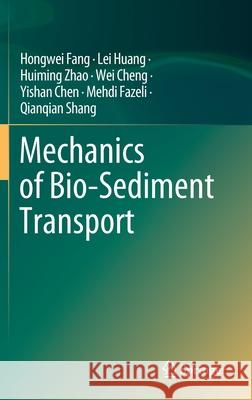Mechanics of Bio-Sediment Transport » książka
topmenu
Mechanics of Bio-Sediment Transport
ISBN-13: 9783662611562 / Angielski / Twarda / 2020 / 388 str.
Kategorie:
Kategorie BISAC:
Wydawca:
Springer
Język:
Angielski
ISBN-13:
9783662611562
Rok wydania:
2020
Wydanie:
2020
Ilość stron:
388
Waga:
0.75 kg
Wymiary:
23.39 x 15.6 x 2.39
Oprawa:
Twarda
Wolumenów:
01
Dodatkowe informacje:
Wydanie ilustrowane











